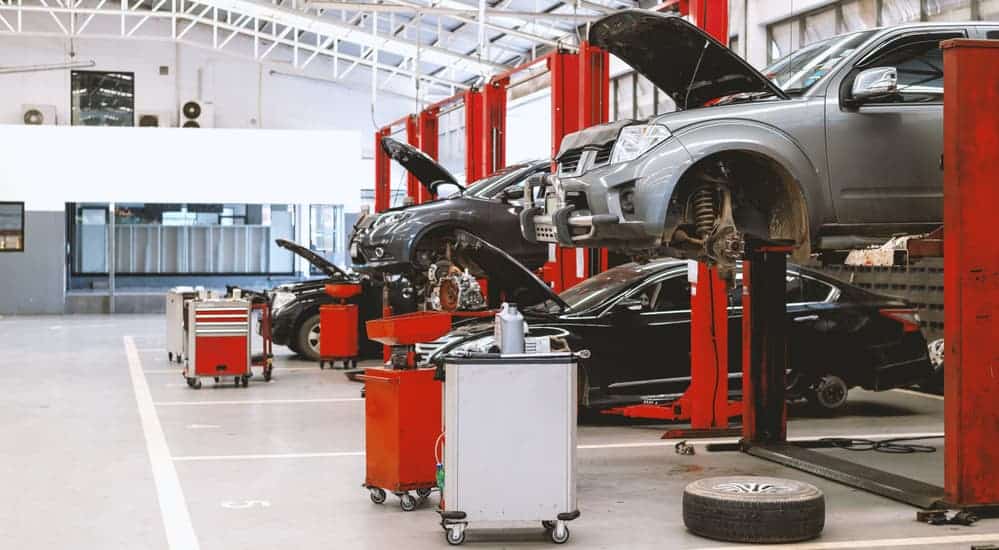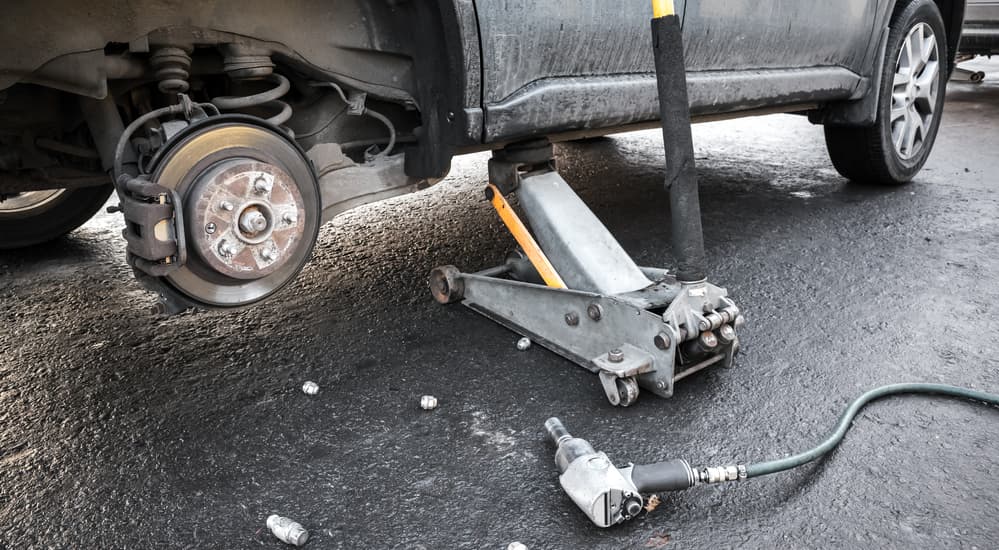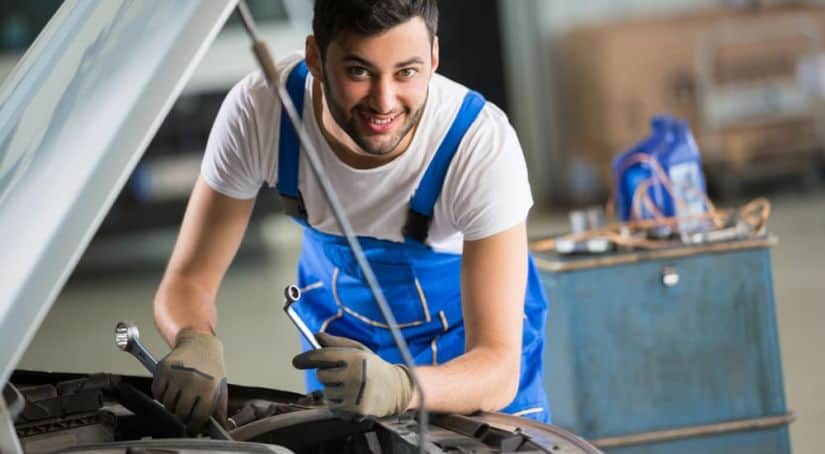This is the sort of discussion that can turn into heated debates at the water cooler. Lots of people swear by their dealerships and refuse to take their cars anywhere else. Others believe their local garage holds all the cards when it comes to the best repair jobs. How do you choose? It’s actually not as cut and dry as you might think. There are a lot of convoluted questions about who should do the repairs when your car starts making clunking sounds, but depending on the job, it can make a big difference if you walk in the door with the right information. When you compare a factory dealer service vs small garage service, you might be surprised.
What Dealerships Have to Offer
Dealerships are often given a bad rap for being expensive. You might walk into the service department of the dealership and notice all the fancy snacks, satellite TV, phone-charging stations, and salon-like atmosphere of the waiting room and wonder, “Is this why my service fees are so high?” Maybe, but it actually is far more complicated than just the freebies in the waiting room.
Part of those fees is because you are paying for new parts directly from the manufacturer. This could be a good thing if you bought a new car you really value. Those parts are guaranteed, often for a certain number of miles or months, and if anything goes wrong in that time period, the dealership will fix it free. Another side of this issue is when the mechanics at the dealership work on your car, they are often trained specifically to standards of the manufacturer, know the most up-to-date repair information, and can usually update software using factory-specific equipment.

Another consideration on the plus side is to take into account that dealerships honor warranties, and when you have one on your car, it means you get serviced for free or for less than an independent garage. Of course, if you ever run into trouble with your car needing a recall or repair, there’s no question about where to take it: the dealership. Recalls have to be honored at dealerships for no charge, so that’s a no-brainer. All these situations seem to wrap it up for the dealerships, but there’s a dark side to taking your car to the shiny showrooms on the edge of civilization.
Much like a trip to the ER, car dealerships may charge high fees for shop supplies. You know how the ER charges $100 for a square of gauze or $200 for some betadine they dumped over your wound (and most of it went all over your clothes)? Dealerships do this sort of thing with shop rags, flush fluids, and other sundry items they use while repairing your vehicle. They don’t always itemize these things, they just add it under the mysterious title of “shop supplies” and leave you wondering. You have the right to challenge these fees, and it makes sense to ask what supplies exactly they’re charging on your bill. And let’s not forget about the long waits at those massive garages where they service a large volume of vehicles in a day. You might be snacking in the waiting room for hours and hours.
You might think you’d disappear at a dealership, but it depends on the owner. Some dealerships have great customer service, and they stay organized and personal about how they handle your servicing. If you go to the dealership for all your repairs, you can bet they’re more likely to remember you. However, for the most part, dealerships are really great at keeping appointment times if you made one before you arrived. This can save you a lot of time, and you won’t have to wait as long for some simple routine maintenance. But, it really depends on the way the service department is managed, and that has to be judged on the basis of personal experience.
What Small Garages Can Do for You
Small garages have certain advantages over dealerships when it comes to service. For one thing, you often won’t pay anywhere near as much (but that is not always a good thing). Dealerships have to pay for the privilege of the name on their door, so your local mechanic is less likely to have so many overhead costs on his or her business. This often gets passed on to the customer in lower prices for labor and parts. Local shops can choose to use parts they acquire from surplus or junked vehicles, and that can mean much cheaper repairs.

On the other hand, if you own an expensive vehicle, you may not want to take the chance of using just any old part that came from a car parked out in Billy’s back yard. In this case, you’re better off asking for new parts that come with a warranty, like you would get at a dealership. Another side of this coin is that when a car needs service, your local shop may be more likely to have a good relationship with you since they see way fewer costumers and may offer you breaks on pricing. Just be careful with some of these discounts or workarounds, when it comes to your engine, cheaper isn’t always better.
Though the dealerships may have mechanics trained to work on the manufacturer’s vehicle lineup, local mechanics may be just as up to snuff, especially if they’ve been servicing cars for decades. Their experience with a wide variety of problems can lead to intelligent repair jobs when it comes to odd noises or unusual problems. Local mechanics often work on a wide array of vehicles, which gives them an edge on a range of issues. On the other side of this, they might not know the intricate workings of your specific model, as well as a manufacturer-certified technician.
How to Choose the Service Provider
If it’s a question of being under warranty, servicing a recall, or having an expensive model you want to keep running at top-notch, the dealership is probably your best bet. Leased vehicles should also be taken to dealerships because when it comes time to turn it back in at the end of the agreement, it helps to have the assurance of their own servicing on the vehicle, so they honor the terms of use. If you take your leased car anywhere else, they might find reasons to ding you for things that they might otherwise overlook.
Owners of used cars, beaters, or vehicles that largely are fairly average may find that heading to the local small garage is the better choice. You might save some money, and you’re helping a small business owner. It can’t hurt to get a quote from both the dealership and the small garage to see who will give you a better price, but it will often depend on the job. Some jobs are too big for small garages, and you may have to head to the dealership anyway.
For either option, head to the shop of your choice with a mindset of asking questions politely, requesting that the mechanic show you the problem, and explain exactly why it needs repair. If you are getting routine maintenance done, make sure they are using the supplies to get the job done. If you aren’t sure if something seems right, get a second opinion.



